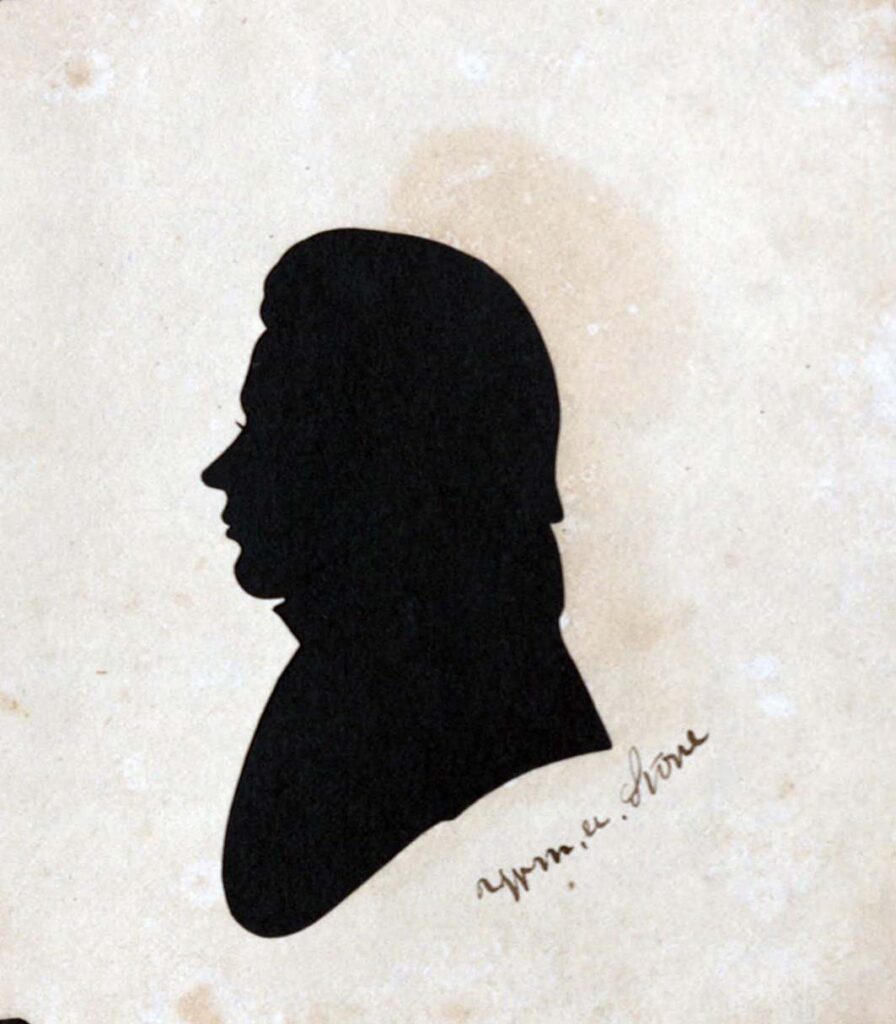
A Mississippi Man
William A. Stone was born March 12, 1804, in Livermore, Maine, the son of Polly Chase and Jesse Stone. Upon arriving at Bowdoin in the Fall of 1821, Stone was assigned room no. 19 in Maine Hall, where his chum or roommate was John Odlin Page. The March 1822 fire that destroyed Maine Hall displaced Stone, who was then assigned a room at the home of Jacob Abbot, a Bowdoin overseer. Stone’s terrible luck continued his sophomore year when he moved to the Misses Toppan rooming house on Park Row. On the night of February 12, 1823, that house burned to the ground and the students living there lost everything. Following that fire, Stone lived with several other members of the Class of 1825 at overseer Benjamin Orr’s house at 153 Park Row (today’s Pumpkin House). For his junior year, Stone lived at Winthrop Hall, and then his senior year, he returned to Maine Hall.
At Bowdoin, Stone joined the Athenean Society, which tended to attract Democrats, Stone’s political affiliation throughout his long life. Stone proved to be less than a model student—he was not academically ranked nor given a Commencement part. He was fined repeatedly, though, by the Executive Government, primarily for absences and sleeping during prayers.
Following graduation, Stone studied law under Peleg Sprague in Hallowell, Maine. Admitted to the bar in 1828, he began his practice at West Prospect, Maine. A few years later, he moved South to Holmesville, Pike County, Mississippi. While there, he was appointed by Governor McNutt as a circuit judge, and then served as a member of the state House of Representatives from 1838 to 1839. In 1839 he moved to Natchez, Mississippi, where he married Hannah M. Merrick. She died on June 14, 1841, and in that same year, Stone moved to Monticello, Mississippi. He served as a state senator from Marion and Lawrence counties from 1848 to 1854 and again from 1856 to 1858. In 1860, he moved to Hazlehurst, Mississippi. His law office was burned by Union soldiers during the Civil War. He later served as mayor of Hazlehusrt and was a Copiah County delegate to the 1865 Constitutional Convention. The aim of the convention was to revise the state’s constitution to remove reference to secession and reinstate a state government. Transcripts of the Convention suggest that Stone was most interested in exonerating White Mississippians who fought in the Civil War from criminal prosecution. According to his obituary, the “greatest grief of his latter days was being prevented by sickness from attending the meeting of the survivors of his class at Brunswick.” Stone died on November 13, 1877.